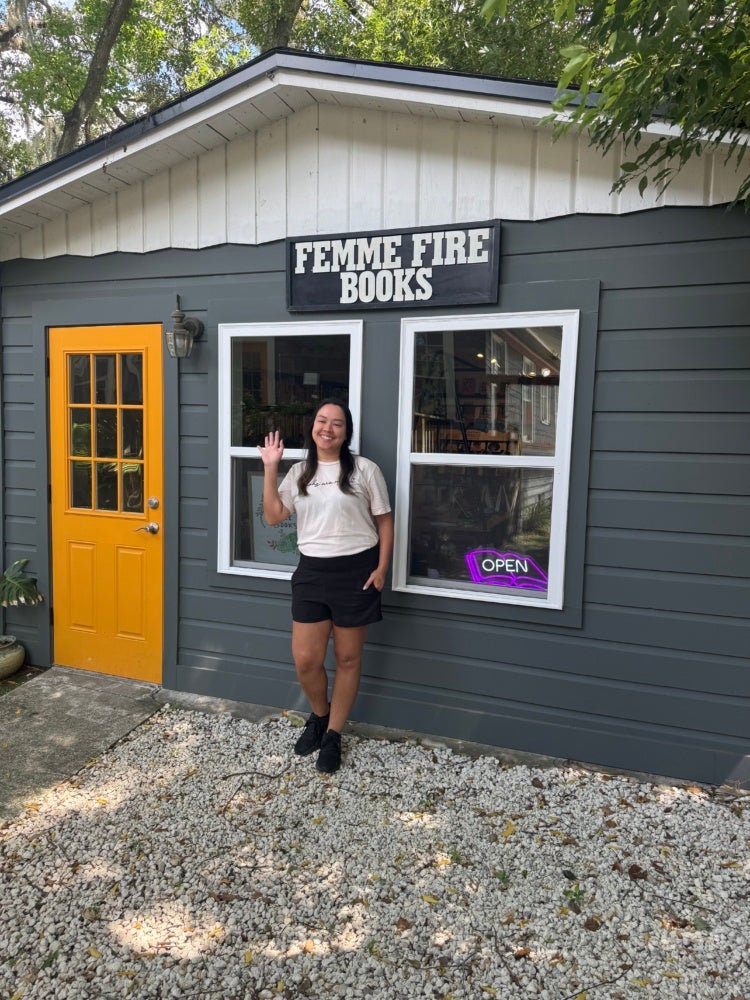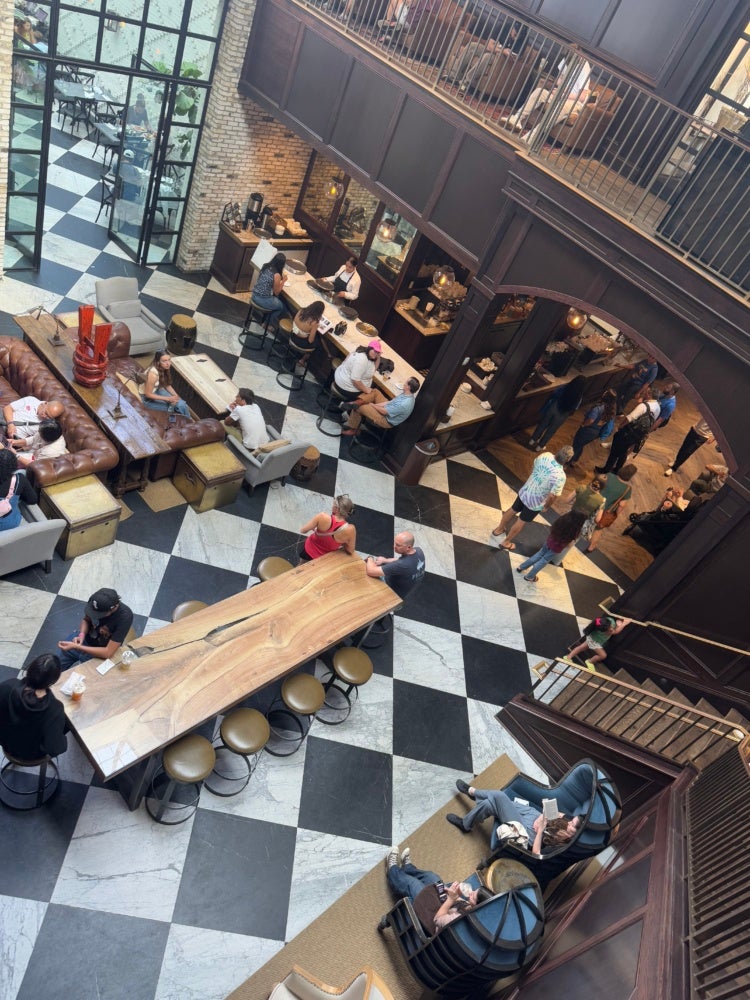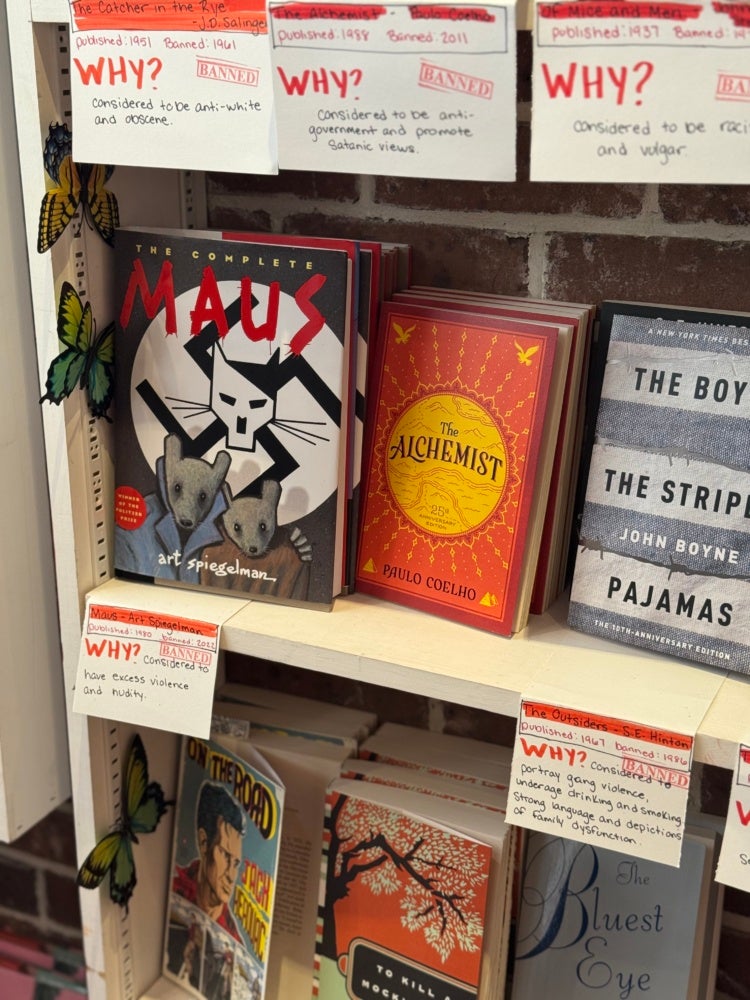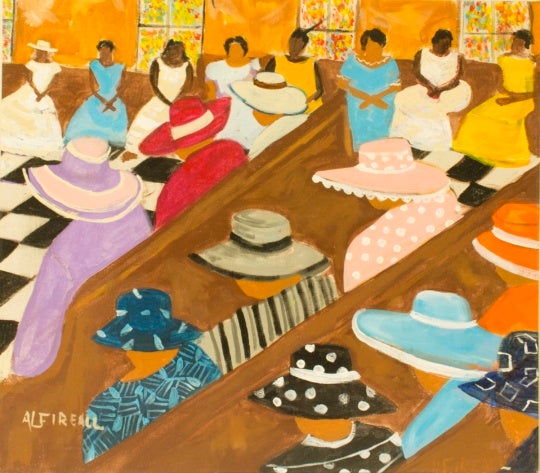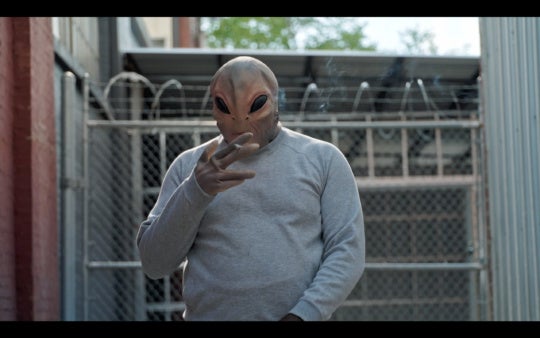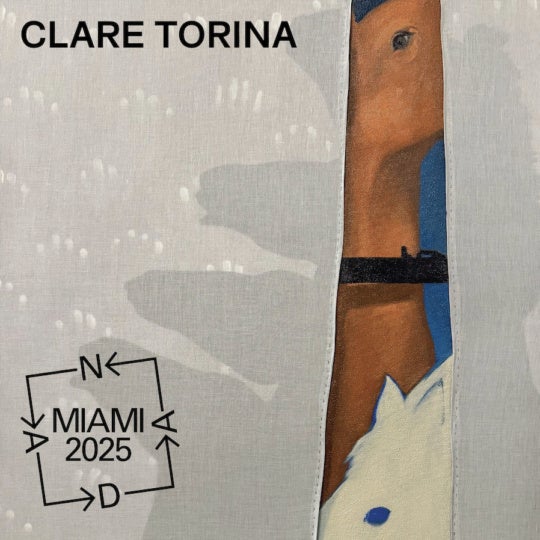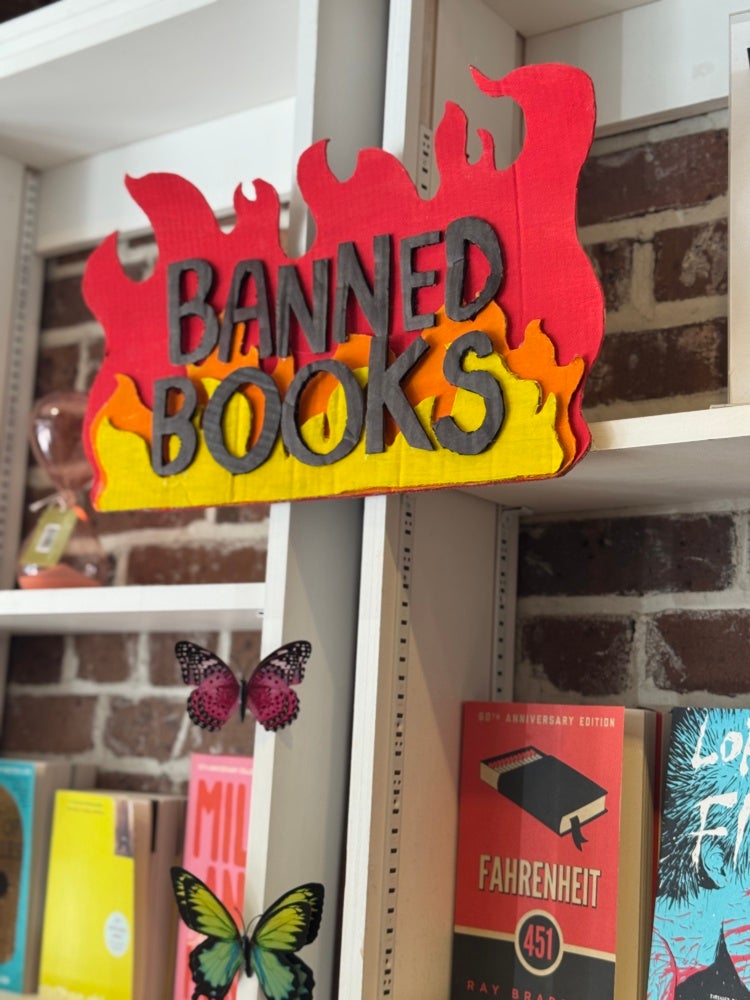
In May of 2023, the celebrated writer Lauren Groff attended a garden party at the office of her German publisher. Around a candlelit table, Groff shared glasses of wine and conversations with colleagues. Apart from the lovely rosé, however, her German friends shared something else with the American writer: alarm.
Groff was in the country as a Fellow at the American Academy in Berlin, but the concern those around her shared was over what was happening in Groff’s home state of Florida, where a book ban was crystalizing.
Florida is no stranger to threats of book banning. In the 1980s, the pressure to pull books from circulation stemmed from special interest groups and focused mostly around fighting sexual content and secular humanism, which conservative Christians feared would erode American values. But this latest flurry of banned titles was coming from a government level.
House Bill 1467, enacted in mid-2022 by Governor Ron DeSantis, was beginning to go into effect, allowing Florida parents to bring a challenge against books they considered pornographic, explicit, or otherwise inappropriate. The subjectivity of these terms meant that school districts would begin hearing from vocal citizens about a range of books, including modern classics by Judy Blume, Toni Morrison, and Margaret Atwood. The law also opened the door for non-parents to levy challenges against books they found offensive. Once challenged, a book had to be pulled from the shelves of schools for evaluation by a trained media specialist.
Back at the German garden party, Groff’s editor quoted the German-Jewish poet, Heinrich Heine: “Where they burn books, they will also ultimately burn people.” Heine’s books, perhaps needless to say, were burned by the Nazis.
Groff knew what was happening at home was bad, but this moment was a catalyst toward concrete action. “Coming from a German person, that [quote] is the most chilling thing you can hear,” she told me.
She decided to open a bookstore.
And she wasn’t the only concerned literary Floridian to do so.
*
New bookstores have popped up everywhere in Florida, from Kissimmee (White Rose, 2023) to Jacksonville (Femme Fire Books, 2022); Tallahassee (Midtown Reader & Piebrary, 2016) to St. Pete (Tombolo Books, 2019). From the southernmost tip to the Panhandle, the state is bedazzled by books.
The indie buzz is also one of the reasons that, this summer 2025, six months after Trump’s second inauguration, I hit the road to read through Florida and visit as many independent bookstores as I could. Two kids and my company partner in tow, I packed the Land Cruiser, and out we went on the great American Road trip, straight into the heart of who we are as a community, a state, a country.
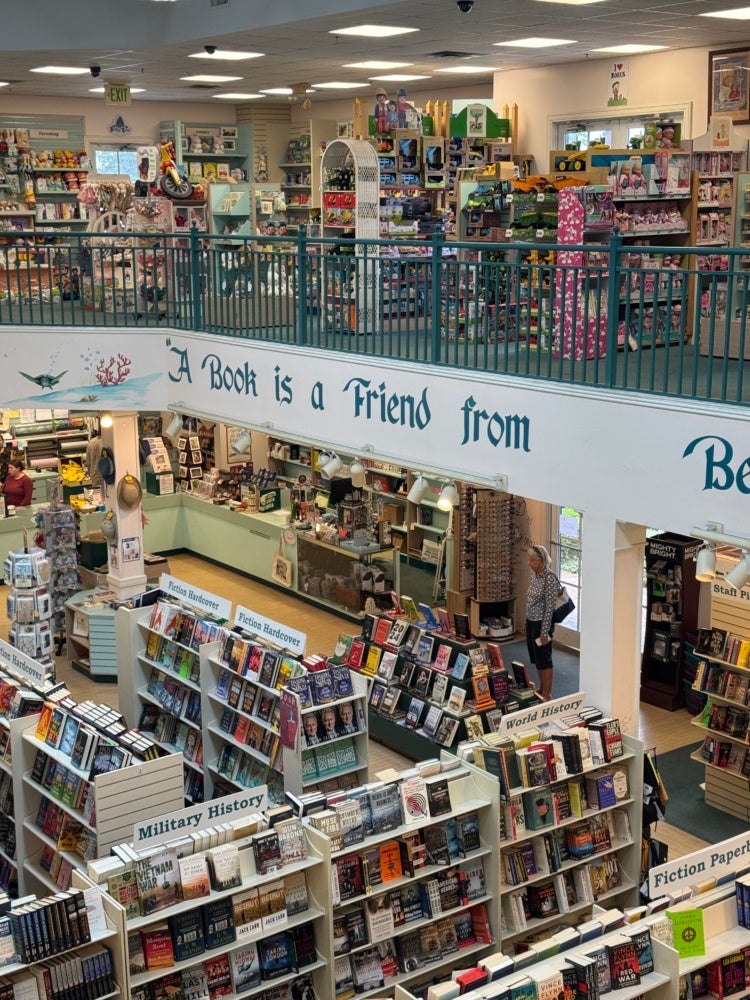
Our adventure carried us to a number of bookstores, all with their own curatorial bents: Steamy Lit, a Romance bookstore with locations in Deerfield Beach and Tampa, kicked its heels up and puckered; Vero Beach Book Center pulsed with the history of fifty years of authors who have talked, argued, shared, and scribbled there—the writing’s literally on the walls. Rhinestones and social media influences are a common denominator, as is escape, mystery, fantasy and “romantacy.” And book clubs of all stars and stripes. Another common denominator: people are gathering.
But there’s more at stake too. Many of the booksellers around these shops are calling what they do an act of resistance. It’s a word that comes up over and over again as I visit stores. It’s also a word that gets lost in the repetition, so let’s resist the urge to repeat it without stopping to analyze it. From the mid 14th century, its humanistic meaning is to take moral or political opposition. Scientifically, resistance is when one material impedes, slows, or stops another material. Electrically, it’s when something opposes a current and dissipates the energy. For independent booksellers—an innately literary kind of people—each of these definitions resonates, at least metaphorically.
A number of Florida’s indie bookstores are owned and operated by women, including literary stars like Groff, and like Judy Blume, who runs a Key West outpost of Books & Books, the famed Miami bookshop. Partially responsible for this surge is Donna Paz Kaufman, who has been helping people open bookstores for decades through The Bookstore Training Group. Kaufman felt particularly drawn to women who were putting it all on the line, who were carrying book-loving legacies and the investments of their families—women who told her they just couldn’t fail. Since founding the Bookstore Training Group in 1992, Kaufman and her team have trained aspiring bookstore owners, including Groff, in the practical aspects of the business. Kaufman also operates her own bookstore, Story & Song, on Amelia Island. This is what Kaufman calls her life’s work, and she has ensured it moves beyond her lifetime. “When we are no longer walking this Earth, my husband and I, everything will get liquidated and come here. Everything that we own,” she told me, gesturing around her store as she spoke.
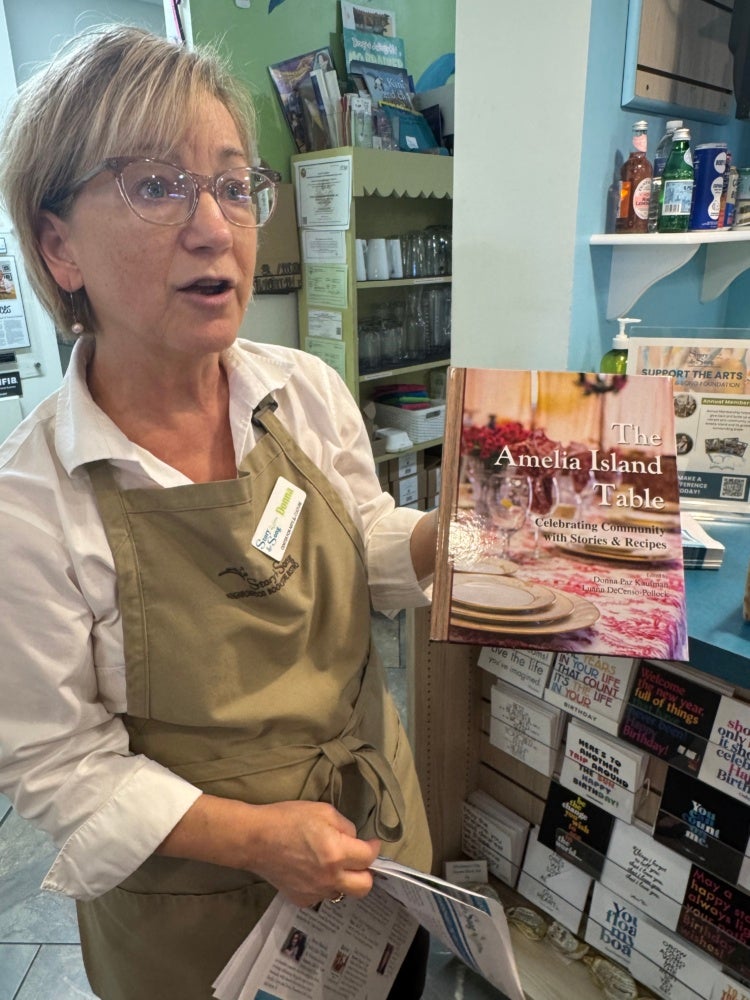
Another champion of Florida’s independent bookstores is Mitchell Kaplan, the person Judy Blume calls her “guru” in the bookstore business and one of the country’s most well-respected booksellers. If there was ever a bookstore mothership, it might just be Miami’s Books & Books, which he launched in 1982. “Built into our DNA,” Kaplan reminded me, “was always the freedom to read.”
Kaplan gave me my first job out of high school, when I took a semester off between senior year and college to figure out who I was and what I really wanted. Perhaps I was drawn to him and his store because “the freedom to read” was also one of the central tenants of my own household growing up. My grandfather had escaped three dictators in his life—Franco, Hitler, and Castro—and insisted on reading everything he could get his hands on. He took me to readings at Books & Books long before I worked there, long before I could understand what anyone was really saying. He didn’t always agree with the writers we listened to or the books he gave me to read; but that was the point.
In 1989, just a few years after Kaplan opened Books & Books, the Berlin Wall came crashing down and waves of freedom opened onto the world. Many Cuban Americans in Miami, like myself, believed for a moment that our homeland would soon be free, too. No such luck. Instead, writers were escaping the island and finding refuge, community, and space to read freely at Kaplan’s store. (1989 was also the year Ayatollah Khomeini issued a fatwa against the British writer Salman Rushdie over The Satanic Verses. Rushdie, who survived a 2022 attack that cost him an eye, still lives under the threat of death.)
*
Writing has never been safe. The freedom to read has never been wholly guaranteed. Visiting the booksellers working to uphold these bastions of democracy in spite of a state government that continues to enact anti-literary policies was the point of my summer road trip. Stories about Florida’s book bans abound, but I wanted to grasp the stories of their resistance—and to show my children that the freedom to read is still alive and well in their home state. The ride wasn’t quite a coastal beach read; it was wild yet purposeful, curious yet focused—much in the spirit of the Florida lynx, or bobcat, (though we were most active in daylight).
The Lynx is what Groff called the bookstore she opened in Gainesville, Florida, where, on a muggy day in late July, I found myself sitting across from one of her store’s managers, Grant Huchingson. “There’s a certain moral clarity that comes with the act of reading, the ability to look at something and say I agree with this, I don’t agree with this,” Huchingson says. He is slight, sharp, and stylish in a bolo tie engraved with a creature that looks like a phoenix. When I compliment the accessory, he offers it to me as a gift, though I refuse—it looks too good on him.
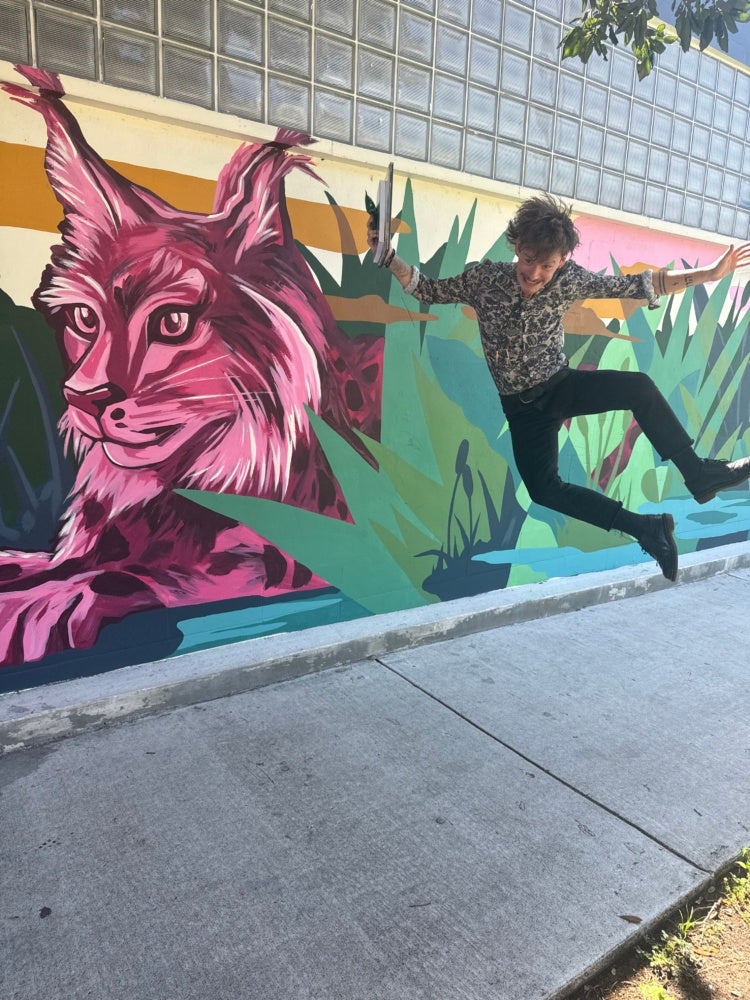
Huchingson is very much a “classics man,” he says—an identity that may have been inspired by reading The Mortification of Sin as a kid. His first pet was a cow, and while his childhood home didn’t have a swimming pool, it had natural springs practically in the backyard. “Florida magic,” he calls his upbringing, though he says that being a gay highschooler in North Central Florida was a nightmare. Before he got the job at Lynx, he contemplated leaving the state for good. He points to pictures of a lighthouse and Virginia Woolf tattooed on his arm—Woolf, who is so good at striking a match to a moment and turning that moment into a lighthouse. Huchingson is a lighthouse. So is the bookstore he works at.
“We save lives, too,” he says. He means this literally. Books saved Huchingson’s life, once, and he sees the same impact in some of his customers. In high school, when things were not good, he found refuge in The Perks of Being a Wallflower by Stephen Chbosky, a book that’s recently been pulled from circulation in several Florida school districts, alongside The Kite Runner, The Diary of Anne Frank, Judy Blume’s Forever, and many others.
When Groff first opened The Lynx, she received a lot of letters. She remembers one from a trans person who had moved to Seattle. They wrote Groff that they wouldn’t have had to move if The Lynx had been around. “That broke my heart,” Groff says, emphasizing that creating space for people who find solace in books—people like her store manager Grant Huchingson—is what The Lynx is all about. “All the little, tiny Grants who are maybe twelve, thirteen years old, who are just discovering what it is to be who they are. And people who need the books that are currently being pulled from their school shelves. We want to shed as much light as possible in their direction. That’s what I think about and I dream about.”

If The Lynx is a link, so, too, is Tombolo Books in St. Petersburg, Florida. The name of the store invokes the sandy connectors between islands. Founder Alsace Walentine, who co-owns Tombolo with her wife and business partner, Candice Anderson, says that the store is meant to be a bridge.
Walentine started the store in 2019, after testing a pop-up version all around St. Pete. Her early days as an independent bookstore owner were shaped by the Covid-19 pandemic. She stayed in business by making book deliveries all over the Tampa Bay area on her bike. She and Anderson also hired a marketing and events manager, Kelsey Jagneaux, who started hosting readings and literary events via zoom. The store now runs between seven and ten events a month. It’s become the kind of place authors love to pass through, including myself. My kids and I stopped here when I was promoting my picture book What the Bread Says. The welcoming nature of the place left its mark on us, and we’ve returned to the “rainbow store,” which is what my daughter calls the shop (because of its colorful exterior), many times since.
In 2025, in the aftermath of two hurricanes and Trump’s inauguration, people really showed up for each other, says Anderson. One day, early in the year, a regular stopped in and bought a book; he also bought a gift card and directed Walentine and Anderson to supply it to a patron who arrived seeming down and out—the next person who needed a book.

A couple hours later, the booksellers gave the donated card to a woman for the purchase of a book. The gesture was repeated the following day, when a patron who’d witnessed the anonymous book-giving called the store and donated a thousand dollars worth of books to her fellow customers. Walentine couldn’t believe it. “We don’t even have gift cards that hold that much. We had to split it into four cards,” she says. “That went on for weeks,” Anderson says.
*
In 2024, Governor Ron De Santis had to pull back the reins a bit because the bans were getting out of hand. House Bill 1285 aimed at, among other things, decreasing the frequency of challenges brought against books in schools by limiting non parental challenges to one per month. (The bill imposed no limits on parents or guardians.) “Schools are there to serve the community,” said DeSantis. “Schools are not there for you to try and go on some ideological joyride at the expense of our kids.” And yet, the list of banned books across the state remains long: late last year, Florida’s Department of Education released a list of more than seven hundred titles that were pulled from K–12 schools during the 2023-2024 academic year.
Judy Blume, who has seen all of this before, refuses to sugarcoat what’s happening.
I did think that what happened in the ’80s, which was so excruciating . . . I thought, “we’ll never have to go through that again.” Maybe that was wishful thinking. It’s nothing like what’s happening now to our schools, to our libraries—people prescribing what we can learn, what truths can’t be taught anymore. Where are we? . . . I don’t know if in my lifetime now—I’m eighty-seven—if I’m going to see the other side of this. But I have family, I can’t run away. I have to stay and fight and do what I can do.
I spoke to Blume at the end of her summer vacation in Maine, as she was preparing to go back home to Florida, to keep showing up at Books & Books Key West, where she works two to three days a week. All around her store are titles by the pantheon of writers who came before, some mentors or colleagues, some whose words alone were friends, long gone before she arrived at the edge of the United States. All wrote and read through the heat and toward a new horizon. That’s what we do here, in Florida. It’s in our DNA.
